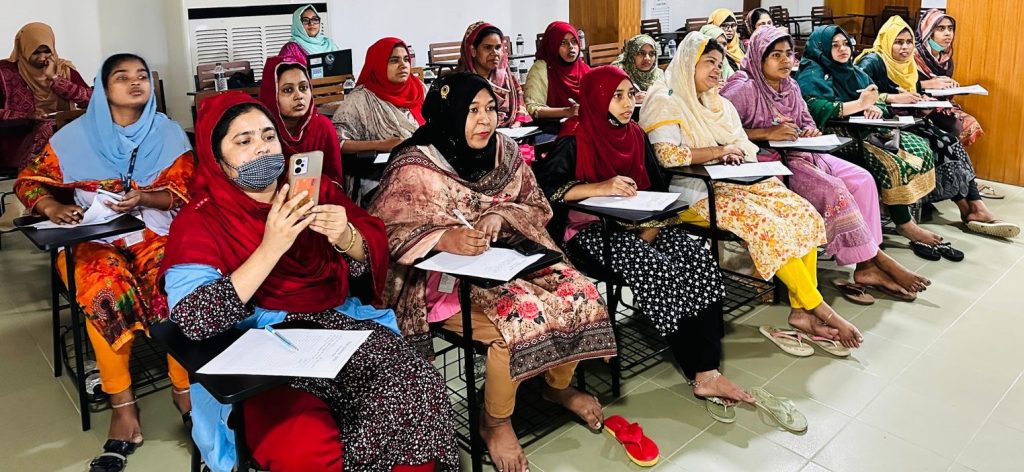Respectful Workplace Program
Respectful Workplace Program
Fostering Gender Leadership under IE, Production, HR/Complaintce & addressing gender-based violence and harassment and promoting a respectful workplace culture.
Objectives
- Ensure top management’s active commitment to a respectful workplace with zero tolerance for gender-based violence and harassment (GBVH).
- Train employees, managers, and Gender Ambassadors through targeted programs and develop Master Trainers for lasting impact.
- Strengthen the Complaint Committee to create a safer, more supportive work environment.

Why GBVH is a concern for the workplace?
- 45% of RMG workers experienced GBVH
- 22% psychological harassment
- 17% verbal abuse
- 7% physical violence
- 89% suffered mental breakdowns
- 83% lost interest in jobs.
- 49% more accidents
- 60% more errors and defects
- 50% higher absenteeism
- 50% higher voluntary turnover
- 45% decreased employee engagement
Benefits of Respectful Workplace Program
Reduce workplac conflicts, absenteeism, & turnover
Improve productivity, safety & worker satisfaction
Enhance business reputation
Build a sustainable, ethical, and legally compliant workforce.
Engagement
12-15 days direct engagement at factory premises within 12 months periods (as follows):
Commitmment from top management and conduct need assessment
– Kick-off at factory
– Gender Assessment
– Identify and train key staff to be focal points for GBVH (Gender Ambassadors)
Addressing GBVH and creating respectful workplace
– Capacity of Gender Ambassadors: Production, Industrial Engineers, HR/Compliance Management
– Develop GBVH and respectful workplace policies and procedures
– Develop Master Trainers (ToT) on Respectful Workplace Program
Addressing GBVH and creating respectful workplace (cont.)
– Engagement sessions with workers, supervisors, and middle management
– Functionality of the Complaint Committee, including survivor-centered approach, non-retaliation, grievance redressal system
Monitor and Sustain Respectful Workplaces
– Review progress and conduct end line survey
– Disseminate findings
– Establish a gender responsive policy framework and promote a culture
